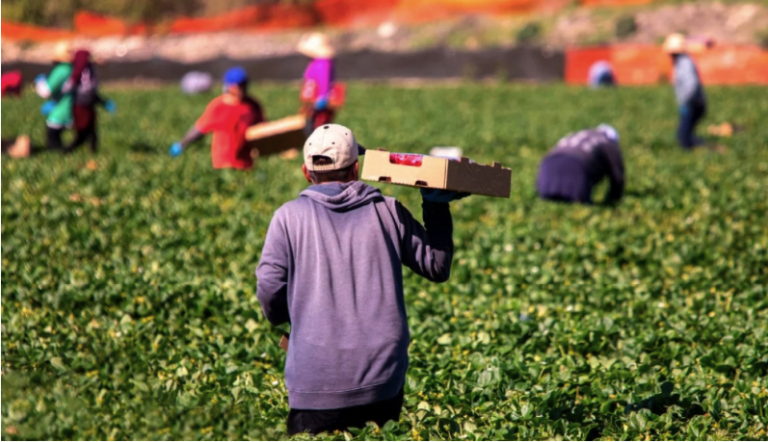An additional 32,507 new calls of workers from third countries to Greece for the period 2023-2024 were approved by the Ministries of Immigration and Labor, according to the relevant Joint Ministerial Decision, in order to address the shortage of workers mainly in the sectors of agriculture, livestock, tourism and construction.
The 32,507 new positions of post-employment workers are added to the 167,925 post-employment positions which have already been approved for the 2 years 2023 – 2024.
Of the positions that have been green-lighted:
11,000 jobs (34%) are for unskilled agricultural, livestock, forestry and fishing workers.
3,500 jobs (10.8%) are for unskilled construction/building workers or specific positions (e.g. forklift operators, etc.).
10,100 jobs (31%) are in seasonal jobs in tourism with almost half (around 5,000) located in the South Aegean Region (Cyclades and Dodecanese).
Most jobs are in Attica, followed by the regions of Macedonia, South Aegean, Crete and other regions active in tourism.
The posts to be filled are seasonal tourism workers (maids, cooks, waiters, waitresses, buffet waiters), unskilled agricultural, livestock, forestry and fishery workers, as well as carers for the elderly and disabled.
The problem of vacancies is huge, as obstacles and delays are putting a brake on the creation of a permanent immigration mechanism, with the result that workers from third countries prefer Spain and Italy not only for their higher wages, but also for the recent regulations that make it much easier to obtain “papers” for foreign workers, while in Greece it takes around 7 years to obtain a residence permit and citizenship.
The corresponding waiting period in Italy and Germany is about 3 years.
The situation will not change overnight.
The green light, however, for mass recalls was given during Kyriakos Mitsotakis’ trip to India where the foundation was laid for a bilateral agreement on recalls from India’s huge source of labour that will be tabled in Parliament in April.
Other countries are also entering the frame, including Vietnam, which has a tradition of skilled artisans such as unloaders, welders and packaging workers, Bangladesh, which exports doctors, and the Philippines, which exports captains.
In total, six labour mobility agreements are in the pipeline – including Moldova and Georgia, as thousands of workers from these countries are already in Greece – while future calls aim to include Armenian citizens affected by the conflicts in Nagorno-Karabakh.
Copernicus: The winter of 2023-2024 was the warmest ever in Greece – meteo maps
At the same time, the issue of facilitating the legalization of immigrants who have been in Greece for several years under strict terms and conditions, which caused political turmoil as the amendment was voted down by Antonis Samaras, seems to be “walking”, albeit slowly.
According to Immigration and Asylum Minister Dimitris Kairidis, 7,000 applications have been submitted to the platform, which has already been operating since February, while 1,500 temporary residence permits have been granted, meaning that 1,500 foreigners have been given a VAT number and are working legally.
“We are bringing order to the labour market. We want it clean.
We don’t want the illegal and undeclared,” said Mr. Kairidis, stressing that our country will sign bilateral agreements in the spring with six countries – India, Armenia, Moldova, Georgia, the Philippines and Vietnam.
Ask me anything
Explore related questions





